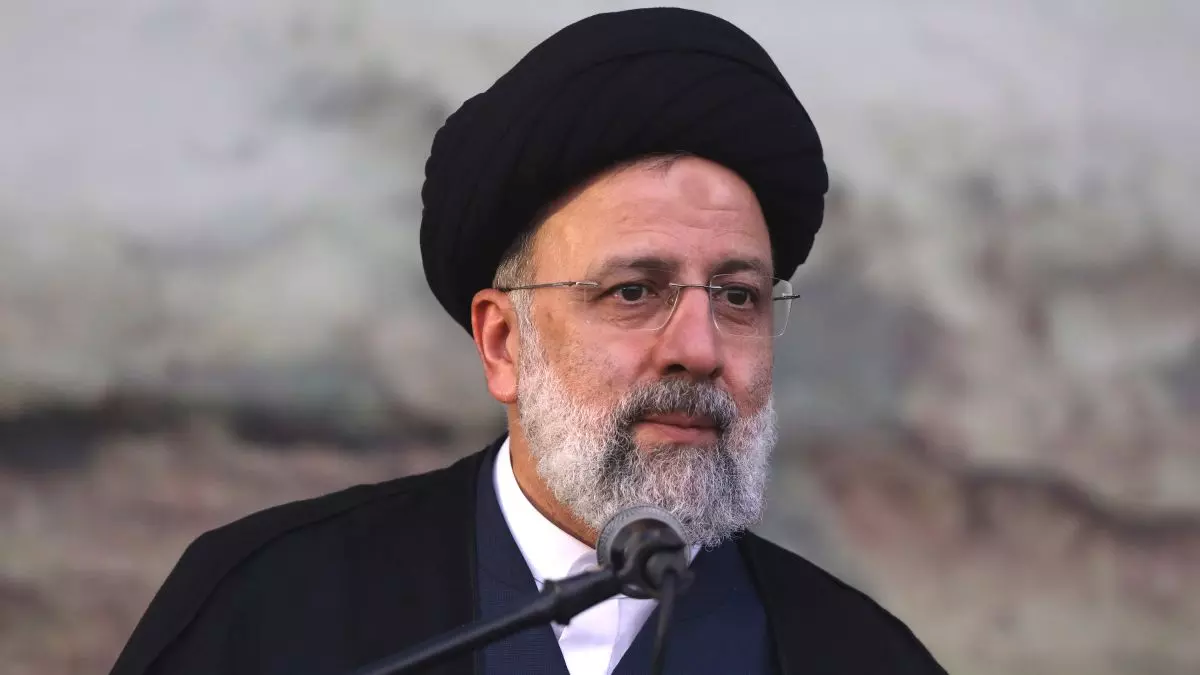
When Raisi takes over in Tehran
text_fieldsEbrahim Raisi, the chief justice of Iran's Supreme Court, known as a conservative hardliner and a confidant of Iran's supreme spiritual leader Ayatollah Khamenei, has been elected the eightth president of Iran. Raisi, who had lost the last election to Hassan Rouhani, won nearly 62 percent of the total 28.9 million votes polled in Friday's election. His nearest rival and former Revolutionary Guard commander Mohsen Rezaei was able to garner 34 million votes. Opposing the extreme line of Raisi and Rezaei was 'moderate reformist' and former central bank chief Abdolnasser Hemmati who was pushed to the third place with 24 million votes.
Even before elections, complaints were in the air that the electoral process fell short of satisfying the democratic wishes of Iran's citizenry. With the supreme council disqualifying front-running candidates including former President Ahmadinejad, former speaker Ali Larijani, known as a reformist, outgoing Eshaq Jahangiri, this time round the extreme hardliners got the upper hand. There were no candidates fielded by the Reforms Front, the joint forum of reformists and centrists. Abdolnasser Hemmati, the candidate who had championed economic reforms, had won the support of a 12-party coalition led by right-of-centre grouping 'Hezb-e Kārgozārān-e Sāzandegi' (Executives of Construction Party), but their belatedly declared support did not help Hemmati. That the Iranian electorate this time was indifferent to the polling process is vouched for by the lowest ever voter turnout (48.8 percent) in the forty years of post-revolutionary Iran's history. When a large number of voters protested with empty ballots, the total invalid and boycotting voters counted 41,65,803– which was more than that of the three candidates behind the winner.
Although western media are wont to draw a binary of Iranian politicians into conservative hardliners and moderate reformers, the truth is that such distinctions do not usually get reflected in the country's diplomacy or strategic policies. Ever since the ouster of the Pahlavi dynasty and the emergence of the Islamic Republic of Iran presided over by the spiritual leader Ayatollah Ruhollah Qomeini in late 1970s, Iran has been following a sovereign system named Velayat-e-faqih. This consists of a Council of Guardians under the leadership of its leader (Ayatollah) and is the last word on the country's administrative, political and legal positions. New legislation and election of parliament members are held according to the wishes of this body. Therefore, even if 'reformist' Rouhani is replaced by 'hardliner' Raisi, governance is under the control of Ali Khamenei and the supreme council of guardians. And within that mechanism, what the President has to do is prove his mettle in a range of issues from industrial policy to foreign affairs. The nuclear deal concluded with the US and the resultant relaxation extracted in the decades-long embargo were the feats of outgoing Hassan Rouhani. But soon after Trump came to power in America, that deal was ditched and the embargo restored which vitiated the relations between the two countries. Now the change of guard in Tehran is happening at a time when Trump is out and Biden has taken over and prospects appear in the air of a revival of the annulled nuclear deal.
Western powers including America do not view with any sympathy the ascent to office of Raisi, who is blamed for swooping down on voices against Iranian regime in 1988. UN human rights bodies charge that it was a group of four including the then prosecutor Ebrahim Raisi that was responsible for inflicting death sentences on members of the opposition Mujahideen-e-Khalq in July-Sep 1988 and consigning them to mass graves. And it was Raisi as judge who recently sentenced to death a wrestling star and a journalist, an accusation that Raisi refutes even as he favours the punishment. One who supported the nuclear deal with the US, he has declared that Iran will take part in the Vienna talks and pressurise the US. But with Raisi the disciple of Khamenei at the helm in Tehran, the West is suspicious about the possible game plan of the axis of resistance comprising Syria, Lebanon, Yemen and Iraq from West Asia together with US's arch enemy Venezuela. Add to it the Israeli foreign minister's derisive branding of Raisi as 'the butcher of Tehran' which comes as a warning sign that his ascension does not bode well for evolving political equations. But on the other hand, the gesture of Russia and China in rushing in with greetings to Raisi, and countries including India expressing hopes about bilateral relations should lend strength to Raisi. Ultimately, there is no doubt that it will be the sea-saw of power play with America and Israel on one side and Iran on the other that will determine the course of history in West Asia and even the world at large.























